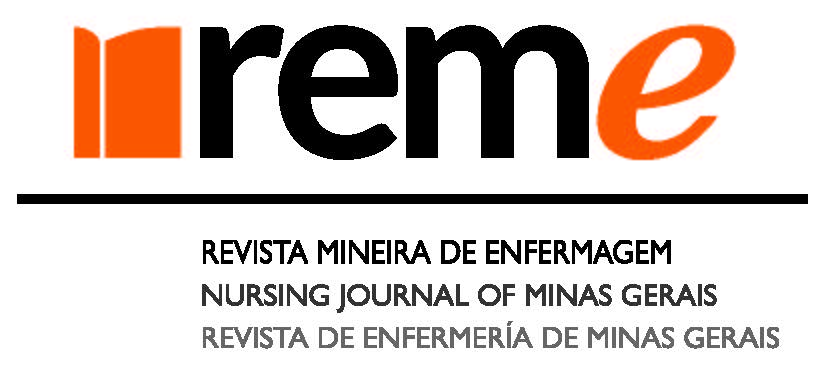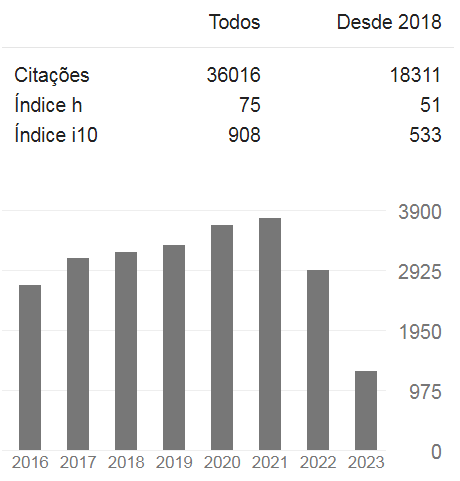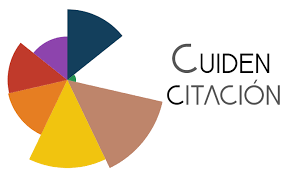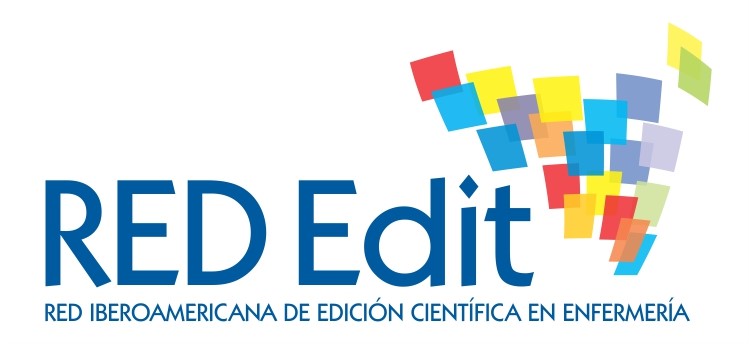Digital technologies for self-care in individuals with type 2 diabetes mellitus
An integrative review
DOI:
https://doi.org/10.35699/reme.v28i1.37531Keywords:
Diabetes Mellitus Type 2, Digital Technology, Self CareAbstract
Objective: this study aimed to examine the impact of digital technologies on promoting self-care among individuals with type 2 diabetes mellitus (DM2). Method: an integrative literature review was conducted in November 2021, utilizing the following databases: Medline via PubMed, Lilacs, BDENF, IBECS via the Virtual Health Library, Embase, and Web of Science. Primary studies, specifically randomized clinical trials that investigated the effect of digital technology in promoting self-care among individuals with DM2, were included. The studies could be published in Portuguese, English, or Spanish, and there were no restrictions on the year of publication. Results: eight articles met the inclusion criteria. Various digital technologies were examined, each with a different theoretical background. The majority of the studies were conducted in primary care settings. The technologies tested included platforms, apps, programs, and software, with content focused on lifestyle factors such as dietary habits, physical activity, weight control, medication management, emotional well-being, and social support. The results indicated that individuals with DM2 experienced improvements in self-management of healthy food intake, glucose monitoring, medication adherence, body mass index monitoring, and positive changes in diet and weight control. The studies also demonstrated comprehensive outcomes, including a reduction in HbA1c levels and an enhancement in quality of life. Conclusion: the studies reviewed provided a strong theoretical foundation for achieving behavioral and clinical changes, considering the social context of individuals with DM2. Furthermore, these studies highlighted the potential benefits of digital technologies in promoting self-care and improving the quality of life among this population.
Downloads
References
Sociedade Brasileira de Diabetes. Diretrizes SBD 2023. São Paulo: Editora Clannad; 2023[citado em 2023 maio 15]. Disponível em: https://diretriz.diabetes.org.br/
Torres HC, Pereira FRL, Alexandre RL. Avaliação das ações educativas na promoção do autogerenciamento dos cuidados em diabetes mellitus tipo 2. Rev Esc Enferm USP [Internet]. 2011[citado em 2023 maio 23];45(5):1-6. Disponível em: https://www.scielo.br/j/reeusp/a/PnvTdkyt7SymWBYfx9Kfb7B/?format=pdf&lang=pt
Introduction: Standards of Medical Care in Diabetes-2019. Diab Care [Internet]. 2019 [citado em 2021 nov. 21];42(Suppl 1):S1-S2. Disponível em: https://pubmed.ncbi.nlm.nih.gov/30559224/
Baptista DR, Wiens A, Pontarolo R, Regis L, Reis WC, Correr CJ. The chronic care model for type 2 diabetes: a systematic review. Diabetol Metab Syndr [Internet]. 2016 [citado em 2021 nov. 5];8:7. Disponível em: https://dmsjournal.biomedcentral.com/articles/10.1186/s13098-015-0119-z
Galvão MTRL, Janeiro JMSV. O autocuidado em enfermagem: autogestão, automonitorização e gestão sintomática como conceitos relacionados. REME - Rev Min Enferm [Internet]. 2013[citado em 2021 nov. 12];17(1):225-30. Disponível em: http://www.reme.org.br/artigo/detalhes/593
Narasimhan M, Kapila M. Implications of self-care for health service provision. Bull World Health Organ [Internet]. 2019[citado em 2021 nov. 12];97(2):76-76A. Disponível em: https://www.ncbi.nlm.nih.gov/pmc/articles/PMC6357575/
Kebede MM, Pischke CR. Popular Diabetes Apps and the Impact of Diabetes App Use on Self-Care Behaviour: A Survey Among the Digital Community of Persons With Diab Soc Media Front Endocrinol [Internet]. 2019[citado em 2021 nov. 21];10(135):1-14. Disponível em: https://pubmed.ncbi.nlm.nih.gov/30881349/
Cui M, Wu X, Mao J, Wang X, Nie M. T2DM Self-Management via Smartphone Applications: A Systematic Review and Meta-Analysis. PLoS One [Internet]. 2016 [citado em 2021 nov. 21];18;11(11):e0166718. Disponível em: https://pubmed.ncbi.nlm.nih.gov/27861583/
Elnaggar A, Park VT, Lee SJ, Bender M, Siegmund LA, Park LG. Patients’ Use of Social Media for Diabetes Self-Care: Systematic Review. J Med Internet Res [Internet]. 2020[citado em 2021 nov. 15];22(4):e14209. Disponível em: https://www.jmir.org/2020/4/e14209/PDF
Zarkogianni K, Litsa E, Mitsis K, Wu PY, Kaddi CD, Cheng CW, et al. A review of emerging technologies for the management of diabetes mellitus. IEEE Trans Biomed Eng [Internet]. 2015[citado em 2021 nov. 12];62(12):2735-49. Disponível em: https://pubmed.ncbi.nlm.nih.gov/26292334/
Riazi H, Larijani B, Langarizadeh M, Shahmoradi L. Managing diabetes mellitus using information technology: a systematic review. J Diabetes Metab Disord [Internet]. 2015[citado em 2021 nov. 13];14(49):1-9. Disponível em: https://pubmed.ncbi.nlm.nih.gov/26075190/
Sustainable Development Goals. Sustainable development knowledge platform. [citado em 2023 jun. 23]. Disponível em: https://sustainabledevelopment.un.org/?menu=1300#
Park S, Kim B. Readiness for utilizing digital intervention: Patterns of internet use among older adults with diabetes. Prim Care Diabetes [Internet]. 2020 [citado em 2021 nov. 15];14(6):692-7. Disponível em: https://pubmed.ncbi.nlm.nih.gov/32839128/
Gong E, Zhang Z, Jin X, Liu Y, Zhong L, Wu Y, et al. Quality, functionality, and features of chinese mobile apps fordiabetes self-management: systematic search and evaluation of mobile apps. JMIR Mhealth Uhealth [Internet]. 2020[citado em 2021 nov. 12];7;8(4):e14836. Disponível em: https://mhealth.jmir.org/2020/4/e14836/
Baptista S, Trawley S, Pouwer F, Oldenburg B, Wadley G, Speight J. What do adults with type 2 diabetes want from the 'perfect' app? Results from thesecond diabetes miles: Australia (MILES-2) study. Diabetes Technol Ther. [Internet]. 2019[citado em 2023 nov. 10];21(7):393–9. Disponível em: https://pubmed.ncbi.nlm.nih.gov/31166804/
Aminuddin H, Jiao N, Jiang Y, Hong J, Wang W. Effectiveness of smartphone-based self-management interventions on self-efficacy, self-careactivities, health-related quality of life and clinical outcomes in patients with type 2 diabetes: a systematic review and meta-analysis. Int J Nurs Stud [Internet]. 2019[citado em 2021 nov. 12]; 8:103286. Disponível em: https://pubmed.ncbi.nlm.nih.gov/30827741/
Wu X, Guo X, Zhang Z. The efficacy of mobile phone apps for lifestyle modification in diabetes: systematic review and meta-analysis. JMIR MhealthUhealth [Internet]. 2019[citado em 2021 nov. 13];15;7(1):e12297. Disponível em: https://mhealth.jmir.org/2019/1/e12297/
Shen Y, Wang F, Zhang X, Zhu X, Sun Q, Fisher E, et al. Effectiveness of internet-based interventions on glycemic control in patients with type 2diabetes: meta-analysis of randomized controlled trials. J Med Internet Res [Internet]. 2018[citado em 2023 nov. 10];7;20(5):e172. Disponível em: https://www.jmir.org/2018/5/e172/
Whittemore R, Knafl K. The integrative review: updated methodology. J Adv Nurs [Internet]. 2005[citado em 2023 nov. 12];52(5):546-3. Disponível em: https://pubmed.ncbi.nlm.nih.gov/16268861/
Page MJ, Moher D, Bossuyt PM, Boutron I, Hoffmann TC, Mulrow CD, et al. PRISMA 2020 explanation and elaboration: updated guidance and exemplars for reporting systematic reviews. BMJ [Internet]. 2021[citado em 2021 nov. 5];29;372:n160. Disponível em: https://pubmed.ncbi.nlm.nih.gov/33781993/
Lockwood C, Porrit K, Munn Z, Rittenmeyer L, Salmond S, Bjerrum M, et al. Chapter 2: Systematic reviews of qualitative evidence. JBI Reviewer's Manual. Adelaide: JBI; 2017[citado em 2021 nov. 12]. Disponível em: https://reviewersmanual.joannabriggs.org/
Galvão CM. Niveis de evidência. Acta Paul Enferm [Internet]. 2006[citado em 2021 nov. 23];19(2):5-5. Disponivel em: http://www.scielo.br/scielo.php?script=sci_arttext&pid=S0103-21002006000200001&lng=pt&tlng=pt
Ouzzani M, Hammady H, Fedorowicz Z, Elmagarmid A. Rayyan-a web and mobile app for systematic reviews. Syst Rev [Internet]. 2016[citado em 2021 nov. 5];5;5(210):1-10. Disponível em: https://pubmed.ncbi.nlm.nih.gov/27919275/
Marziale MHP. Instrumento para recolección de datos revisión integrativa. São Paulo: Redenso; 2015[citado em 2023 jan. 12]. Disponível em: http://gruposdepesquisa.eerp.usp.br/sites/redenso/wp-content/uploads/sites/9/2019/09/Instrumiento_revision_litetarura_RedENSO_2015.pdf Spanish
Dobson R, Whittaker R, Jiang Y, Maddison R, Shepherd M, McNamara C, et al. Effectiveness of text message based, diabetes self management support programme (SMS4BG): two arm, parallel randomised controlled trial. BMJ [Internet]. 2016[citado em 2021 nov. 15];17(361):k1959. Disponível em: https://pubmed.ncbi.nlm.nih.gov/29773539/
Gong E, Baptista S. My Diabetes Coach, a Mobile App–Based Interactive Conversational Agent to Support Type 2 Diabetes Self-Management: Randomized Effectiveness-Implementation Trial. J Med Internet Res [Internet]. 2020[citado em 2021 nov. 13];22(11):e20322. Disponível em: https://pubmed.ncbi.nlm.nih.gov/33151154/
McLeod M, Stanley J, Signal V, Stairmand J, Thompson D, Henderson K, et al. Impact of a comprehensive digital health programme on HbA1c and weight after 12 months for people with diabetes and prediabetes: a randomised controlled trial. Diabetol [Internet]. 2020[citado em 2021 nov. 10];63:2559-70. Disponível em: https://pubmed.ncbi.nlm.nih.gov/32886192/
Oberg U, Isaksson U, Jutterrstrom L, Orre C, Hornsten A. Person-Centered Interactive Self-Management Support in Primary Health Care for People with Type 2 Diabetes: Protocol for a Randomized Controlled Trial. JMIR Res Protoc [Internet]. 2019[citado em 2021 nov. 21];8(4):e10250. Disponível em: https://www.ncbi.nlm.nih.gov/pmc/articles/PMC6475816/
Sevick MA, Zickmund S, Korytkowski M, Piraino B, Sereika S, Mihalko S, et al. Design, feasibility, and acceptability of an intervention using personal digital assistant-based self-monitoring in managing type 2 diabetes. Contemp Clin Trials [Internet]. 2008[citado em 2021 nov. 12];29(3):396-409. Disponível em: https://pubmed.ncbi.nlm.nih.gov/17997364/
Koot D, Goh PSC, Lim RSM, Tian Y, Yau TY, Tan NC, et al. Mobile Lifestyle Management Program (GlycoLeap) for People With Type 2 Diabetes: Single-Arm Feasibility Study. JMIR Mhealth Uhealth [Internet]. 2019[citado em 2021 nov. 12];7(5):e12965. Disponível em: https://pubmed.ncbi.nlm.nih.gov/31127720/
Li J, Parrot S, Sweeting M, Farmer A, Ross J, Dack C, et al. Cost-Effectiveness of Facilitated Access to a Self-Management Website, Compared to Usual Care, for Patients With Type 2 Diabetes (HeLP-Diabetes): Randomized Controlled Trial. J Med Internet Res [Internet]. 2018[citado em 2021 nov. 12];20(6):e201. Disponível em: https://pubmed.ncbi.nlm.nih.gov/29884608/
Kleinman NJ, Shah A, Shah S, Phatak S, Viswanathan V. Improved Medication Adherence and Frequency of Blood Glucose Self-Testing Using an m-Health Platform Versus Usual Care in a Multisite Randomized Clinical Trial Among People with Type 2 Diabetes in India. Telemed J E Health [Internet]. 2017[citado em 2021 nov. 12];23(9):733-40. Disponível em: https://pubmed.ncbi.nlm.nih.gov/28328396/
Greenwood DA, Gee PM, Fatkin KJ, Peeples M. A Systematic Review of Reviews Evaluating Technology-Enabled Diabetes SelfManagement Education and Support. J Diabetes Sci Technol [Internet]. 2017[citado em 5 nov. 2021];11(5):1015-27. Disponível em: https://pubmed.ncbi.nlm.nih.gov/28560898/
Aguila IP, López LV, Robles MAVG, Ângulo FA, Peña JEL. Multimedia education to support management of type 2 diabetes patients. A quasi-experimental study [La educación multimedia como apoyo en el manejo de pacientes con diabetes tipo 2. Estudio cuasi experimental]. Cir Cir [Internet]. 2018[citado em 2021 nov. 12];86(5). Disponível em: https://www.researchgate.net/publication/337686558_Multimedia_education_to_support_management_of_type_2_diabetes_patients_A_quasi-experimental_study
Bandura A. Self-efficay: Toward a Unifying Theory of Behavioral Change. Psychological Review [Internet]. 1977[citado em 2023 abr. 12];84(2):191-215. Disponível em: http://psycnet.apa.org/fulltext/1977-25733-001.pdf
» http://psycnet.apa.org/fulltext/1977-25733-001.pdf
Bandura A, Azzi RG, Polydoro A. Teoria Social Cognitiva: conceitos básicos. Porto Alegre: Artmed; 2008.
Snetselaar LG. Intervenção: aconselhamento para mudança. In: Mahan LK, Escott-Stump S. Alimentos, nutrição e dietoterapia. 10ª ed. Rio de Janeiro: Elsevier; 2010. 489-505p.
Kavookjian J, Berger BA, Grimley DM, Villaume WA, Anderson HM, Barker KN. Patient decision making: Strategies for diabetes diet adherence intervention. Res Soc Adm Pharm [Internet]. 2005[citado em 2021 nov. 13];1(1):389-407. Disponível em: https://pubmed.ncbi.nlm.nih.gov/17138486/
Souza JV, Ferreira MA, Andrade JIA, Calixto AVD, Lira RC. Tecnologias educacionais desenvolvidas para o cuidado ao paciente diabético: revisão integrativa da literatura. Rev Eletrônica Acervo Saúde [Internet]. 2021[citado em 2021 nov. 12];13(5):e7014. Disponível em: https://www.researchgate.net/publication/351321069_Tecnologias_educacionais_desenvolvidas_para_o_cuidado_ao_paciente_diabetico_revisao_integrativa_da_literatura
Sociedade Brasileira de Diabetes. Diretrizes da Sociedade Brasileira de Diabetes (2019-2020). São Paulo: Editora Clannad; 2019[citado em 2023 maio 17]. Disponível em: http://www.saude.ba.gov.br/wp-content/uploads/2020/02/Diretrizes-Sociedade-Brasileira-de-Diabetes-2019-2020.pdf
Abu-Saad K, Murad H, Barid R, Olmer L, Ziv A, Younis-Zeidan N, et al. Development and Efficacy of an Electronic, Culturally Adapted Lifestyle Counseling Tool for Improving Diabetes-Related Dietary Knowledge: Randomized Controlled Trial Among Ethnic Minority Adults with Type 2 Diabetes Mellitus. J Med Internet Res [Internet]. 2019[citado em 2021 nov. 12];21(10):e1367. Disponível em: https://pubmed.ncbi.nlm.nih.gov/31621640/
Barbosa L, Borges PCP, Lemos SS, Cesarino CB. Evaluation of group educational intervention for diabetics receiving care at teaching clinic. Rev Enferm UERJ [Internet]. 2016[citado em 2021 nov. 13];24(2):e4968. Disponível em: https://www.e-publicacoes.uerj.br/index.php/enfermagemuerj/article/view/4968/23128
Adu MD, Malabu UH, Malau-Aduli AEO, Drovandi A, Malau-Aduli BS. User Retention and Engagement with a Mobile App Intervention to Support Self-Management in Australians With Type 1 or Type 2 Diabetes (My Care Hub): Mixed Methods Study. JMIR Mhealth Uhealth [Internet]. 2020[citado em 2021 nov. 17];8(6):e17802. Disponível em: https://pubmed.ncbi.nlm.nih.gov/32525491/
Stratton IM, Adler AI, Neil HAW, Matthews DR, Manley SE, Cull CA, et al. Association of glycaemia with macrovascular and microvascular complications of type 2 diabetes (UKPDS 35): prospective observational study. BMJ [Internet]. 2000[citado em 2021 nov. 15];321:405-12. Disponível em: https://pubmed.ncbi.nlm.nih.gov/10938048/
Corrêa K, Gouvêa GR, Silva MAV, Possobon RF, Barbosa LFLN, Pereira AC, et al. Quality of life and characteristics of diabetic patients. Ciênc Saúde Colet [Internet]. 2017[citado em 2021 nov. 15];22(3):921-30. Disponível em: https://pubmed.ncbi.nlm.nih.gov/283009
Additional Files
Published
How to Cite
Issue
Section
License
Copyright (c) 2024 REME-Revista Mineira de Enfermagem

This work is licensed under a Creative Commons Attribution 4.0 International License.






































